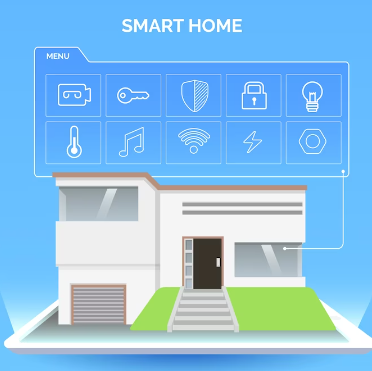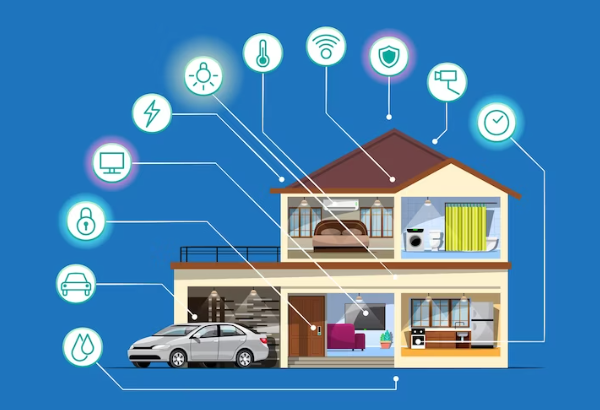In recent years, smart home technology has gained significant traction, revolutionizing the way we interact with our living spaces. From controlling lights and appliances with a simple voice command to monitoring home security remotely, smart home devices have become increasingly popular due to their convenience, efficiency, and ability to enhance our daily lives.
Home theaters have become a staple in modern entertainment spaces, providing an immersive cinematic experience within the comforts of home. These dedicated rooms or setups typically consist of high-quality audio systems, large displays or projectors, and comfortable seating arrangements. Home theaters allow individuals and families to enjoy movies, sports events, gaming, and other multimedia content with superior audiovisual quality.
By integrating smart home technology with your home theater, you can unlock a whole new level of convenience and control. Imagine seamlessly adjusting the lighting to create the perfect ambiance, controlling your audio system with voice commands, and even automating the temperature settings for optimal comfort. These smart home devices can not only enhance your viewing experience but also simplify the management and operation of your home theater system. In this blog post, we will explore the various ways you can integrate smart home technology with your home theater and the benefits it brings. Let’s dive in!
Understanding Smart Home Technology
Smart home technology refers to the integration of devices and systems within a home that can be controlled and automated remotely or through voice commands. These devices are connected to a network and can communicate with each other, providing a seamless and interconnected living environment.
Popular examples of smart home devices include smart speakers like Amazon Echo or Google Home, which can play music, answer questions, and control other smart devices. Smart lighting systems such as Philips Hue allow users to adjust lighting intensity and color. Smart thermostats like Nest or Eco Bee can intelligently regulate temperature settings based on occupancy and preferences.
Smart home technology offers numerous benefits, including enhanced convenience through voice control and automation, increased energy efficiency by optimizing resource usage, improved security through surveillance cameras and smart locks, and the ability to monitor and control devices remotely. These features make smart home technology a valuable addition to any home, improving daily living experiences and providing peace of mind.
Components of a Home Theater System
A home theater system typically consists of essential components such as a high-definition TV or projector, an audio system comprising speakers and a receiver, media sources like Blu-ray players or streaming devices, and comfortable seating arrangements. These components work together to create an immersive entertainment experience.
Modern home theater systems come equipped with various features and capabilities. These may include surrounding sound technologies like Dolby Atmos, 4K resolution for stunning visual clarity, smart TV functionalities for accessing streaming services and apps, and connectivity options such as HDMI and Bluetooth for seamless device integration.
Seamless integration between the components of a home theater system is crucial for a smooth viewing experience. Proper synchronization ensures that the audio and video are perfectly aligned, avoiding any delays or discrepancies. It also allows for convenient control of all components from a single interface, simplifying operation and enhancing user experience. A well-integrated home theater system enables users to focus on the content without any technical interruptions.
Benefits and Advantages of Integration

Integrating smart home technology with your home theater brings improved convenience and control. With the ability to control various aspects of your theater system through voice commands or mobile apps, you can effortlessly adjust settings, switch between media sources, and manage your entire setup with ease.
By synchronizing smart devices with your home theater, you can create immersive and personalized viewing experiences. Imagine having your lights dim automatically, curtains close, and audio system activate as soon as you start a movie. This synchronization enhances the atmosphere and transports you into the world of your favorite films.
Integrating smart home technology with your home theater adds value and appeal to your property. Potential buyers and guests are often impressed by modern and cutting-edge features. A well-integrated home theater with smart technology showcases your home as forward-thinking and sophisticated, increasing its overall market appeal and value.
Challenges and Considerations
Integrating multiple smart devices in your home theater setup can present complexities and technical challenges. Compatibility issues, connectivity problems, and configuration intricacies may arise, requiring careful planning and troubleshooting to ensure seamless integration and proper functioning.
Interconnected smart home technology raises privacy and security concerns. With devices connected to the internet, there is a potential risk of unauthorized access or data breaches. It is essential to prioritize privacy measures, such as strong passwords, firmware updates, and utilizing trusted brands and secure protocols.
Costs and budget considerations are important factors when investing in smart home devices and integration. While smart technology can enhance your home theater experience, it often comes with a price. Assessing your budget, prioritizing essential features, and researching competitive prices will help you make informed decisions and choose the right devices that align with your financial resources.
Conclusion about Integrating Smart Home Technology with Your Home Theater
Integrating smart home technology with your home theater brings a range of benefits, including improved convenience, immersive experiences, energy savings, enhanced security, and increased home value. By seamlessly connecting smart devices, you gain greater control and customization over your entertainment space, allowing you to adjust settings, create personalized experiences, and enjoy a more streamlined viewing experience.
We encourage you to explore the possibilities of voice control, automated lighting, and synchronized audiovisual setups to enhance your home entertainment. As smart home technology continues to advance, we can look forward to even more innovative features and advancements that will shape the future of home theaters. Embrace the potential of smart home technology and stay tuned for exciting developments that will further enhance your home theater experience.

